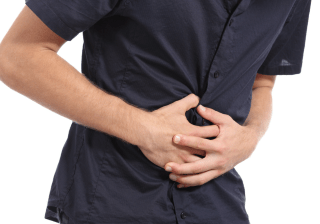Why You Don’t Need to Remove Your Gallbladder: The Truth About Gallstones and Your Health
Gallbladder Removal: A Common Surgery, but Why?
In the land of medical procedures, gallbladder removal seems to be a star performer. But why all the fuss?
The motto seems to be, “If it’s faulty, take it out.” If you’ve got gallstones, the common belief is that your gallbladder is toast, and you’ll be left navigating life on a low-fat diet and a steady diet of painkillers.
But hold on a second! Where did this idea come from, and why is fat being blamed for everything?
The Real Deal on Gallstones and Fat
According to some surprising research, good fats can actually help prevent gallstones, especially during weight loss. Weston A. Price even said, “The gallbladder hates bad fats and no fat.” So, it seems the old low-fat mantra might need a rethink.
Instead of jumping straight to surgery, it’s worth exploring why your gallbladder might be acting up in the first place. Healing the root cause before resorting to removal is a smarter approach.
What’s Behind Those Gallstones?
Your liver makes bile from cholesterol and other goodies, which is then used by your small intestine or stored in your gallbladder until you munch on fats.
Here’s the kicker: if you’re on a low-fat, high-carb diet, your gallbladder doesn’t get the signal to release bile. So, the bile just sits there, and over time, cholesterol and other substances harden into stones.
Doctors often push low-fat diets because gallstones can get bigger, but they usually only cause trouble when you eat fatty foods. When bile is released to digest fats, those stones might get stuck in bile ducts, causing serious pain.
Fat: The Good Guy in Your Diet
Low-fat diets can actually make things worse. Your body needs fat for a ton of reasons, and it’s crucial for every cell. Plus, a lack of fiber can contribute to gallstones. Fiber helps bile in the intestines get rid of waste. Without enough fiber, toxins might get reabsorbed into your system, causing all sorts of trouble.
Signs of Gallstones: What to Watch For
Keep an eye out for these symptoms:
- Gas and burping after meals
- A heavy, full feeling post-meal
- Bloating
- Acid reflux
- Constant abdominal pain and nausea
- Sharp pain under the right ribs that can spread to the shoulder
- Yellowish skin or eyes
- Severe sweating and vomiting in extreme cases
Doctors can spot gallstones with an ultrasound or X-rays.
Risk Factors for Gallstones
You’re more likely to develop gallstones if you:
- Are female
- Are over 40
- Are overweight or obese
- Are pregnant
- Have diabetes
- Have a family history of gallstones
- Have high triglycerides or low HDL cholesterol
- Are on the pill
- You experience rapid weight loss without eating enough fat. According to Volek and Phinney (The Art and Science of Low Carbohydrate Living) “If dietary fat intake is low, (under 30 grams per day) during rapid weight loss, the gallbladder doesn’t get the signal to empty itself, and the cholesterol can build up and increase the risk of gallstone formation.”
Because of the blockage of the bile ducts by the gallstones, the gallbladder can become inflamed and infected, which can impact the pancreas, which relies on bile to function. When this happens, it can be life-threatening, and your gallbladder will need to be removed. But this is only in extreme cases. Following the correct diet can help to alleviate gallstones. A diet higher in fats and low in carbs, like Banting, should be encouraged.
But Wait…
Before you change your diet, always consult with your healthcare practitioner.
If you’ve been on a low-fat diet, gradually increase your fat intake to give your gallbladder time to adjust.
Gallbladder-Friendly Foods
To support good gallbladder function and keep those stones at bay, try these:
- Coconut oil: A gentle fat that doesn’t need bile for digestion.
- Vitamin K2: Found in grass-fed butter, egg yolks, and soft cheeses like Gouda and Brie. It helps prevent gallbladder calcification.
- Beetroot and artichoke: Boost bile production.
- Sunflower seeds: Aid in breaking down fats.
- Fiber-rich foods: Green leafy veggies, asparagus, broccoli, cauliflower, green beans, seeds, nuts, avocados, herbs.
- Omega-3 foods: Oily fish like salmon, sardines, trout.
- Lemon water: Helps thin bile and kickstarts your day’s detox.
- Gut-friendly foods: Fermented foods like sauerkraut and lacto-fermented pickles.
- Bone broth: Rich in healing properties.
- Apple cider vinegar: Aids digestion and thins bile.
- Sprouted seeds: Flax, chia, hemp, and pumpkin seeds reduce inflammation.
- Turmeric: Supports digestion and fights inflammation.
Foods to Avoid
Steer clear of:
- Sugar and processed foods
- Processed seed and vegetable oils
- Food allergies to egg, pork, and onion
- Coffee (can negatively affect the gallbladder)
- Alcohol
No Gallbladder? No Problem!
If you don’t have a gallbladder:
- Bile will be released directly from your liver into your small intestine.
- Eat three regular meals daily at the same time to help your liver produce bile.
- Consider ox bile extract or bile salts to mimic natural bile output.
- Digestive enzymes like lipase or bile salts can help break down fats.
In Summary: Your gallbladder is crucial for storing and releasing bile. Without good bile quality and fat consumption, you might face various health imbalances. A balanced Banting diet can improve gallbladder function, bile production, and help prevent or alleviate gallstones. Surgery should be the last resort.
Need a gallbladder-friendly meal plan? We’ve got you covered!
Take back control of your health with our Online Program. Join us today, track your meals, and connect with others on the same journey. Your gallbladder will thank you!
http://annlouise.com/2015/11/20/debunking-those-big-fat-lies/
http://www.westonaprice.org/health-topics/taking-the-fear-out-of-eating-fat/
http://paleoleap.com/paleo-gallbladder/
http://christinecronau.com/wp-content/uploads/2014/03/Gallbladder.pdf/


